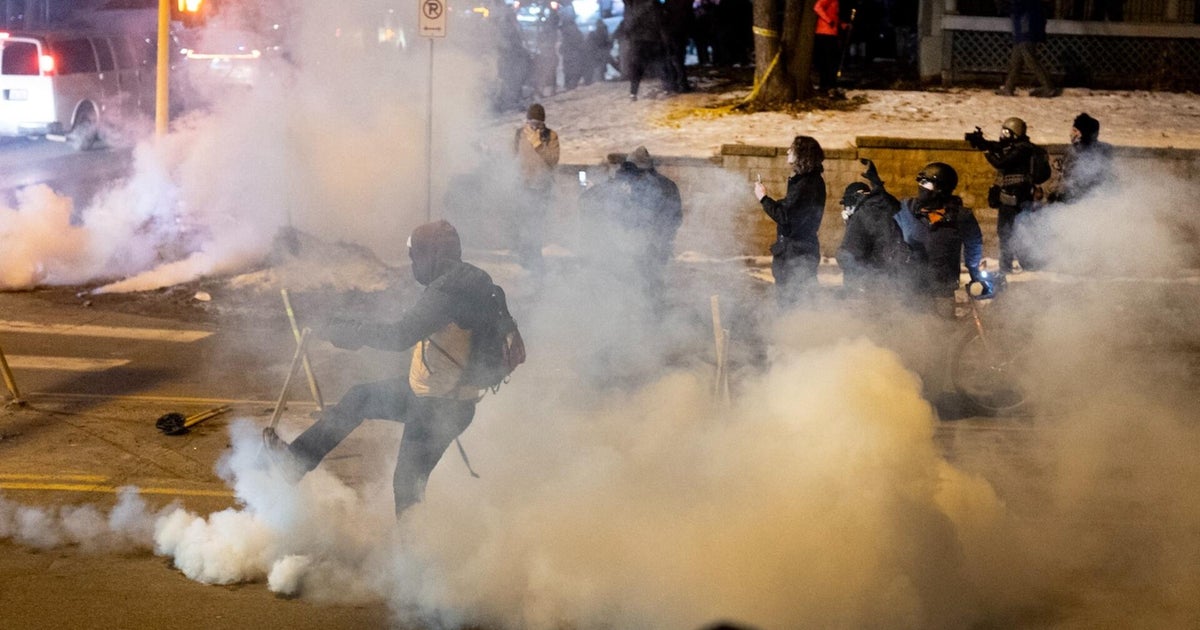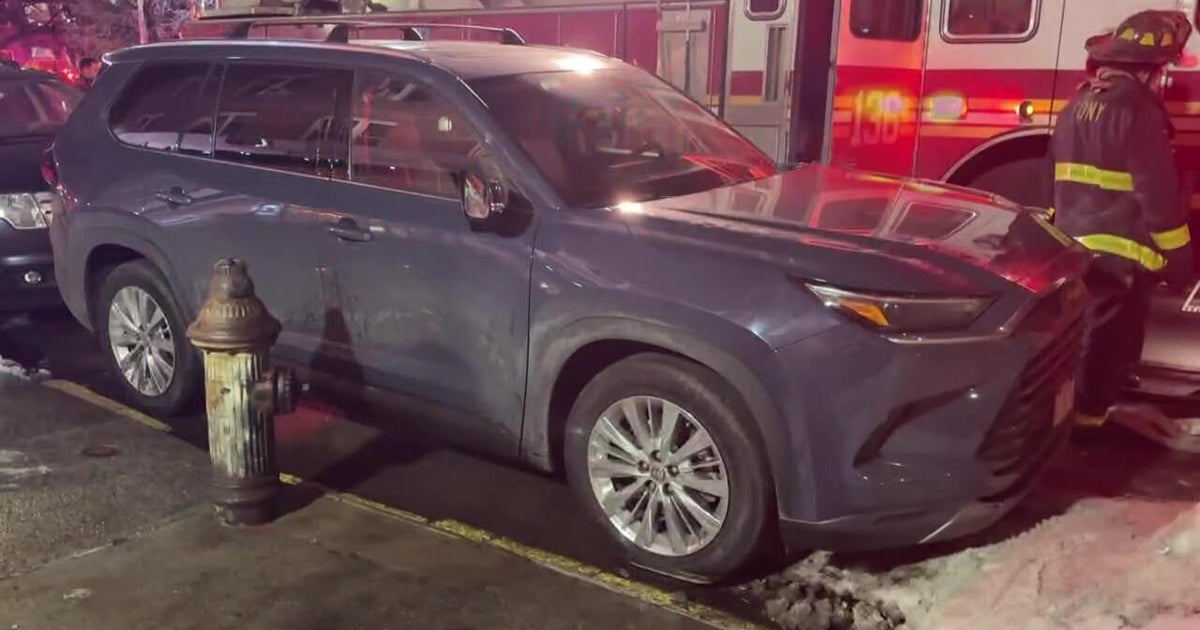Varying Knife Laws Can Confuse Across State, Local Lines
WASHINGTON (AP) -- A few miles off in any direction, and the debate about the knife involved in Freddie Gray's arrest by Baltimore police may have been completely different.
The state of Maryland has one set of laws governing knives. The city of Baltimore has its own rules. Caught in the middle are people like Gray, who probably have no idea whether carrying a legally purchased knife can lead to criminal charges.
A conflict between laws about knives is not unique to Maryland. Nationwide, knife laws vary in neighboring towns, counties, cities and states. This mishmash makes it difficult for citizens to comply.
"How's a person supposed to know what the law is, and how are they supposed to know that there's a difference in the law" between jurisdictions, said Jan Billeb, executive director of the American Knife & Tool Institute, which advocates for greater knife rights in the United States.
Between 2012 and 2014, Baltimore averaged four homicides and 183 aggravated assaults "with edged weapons," which would include knives, compared with 23 homicides and 109 aggravated assaults with firearms, according to data posted by the city on its website.
During encounters with police, civil rights activists say, black men tend to fall victim to confusion over knife laws. In fact, Gray is among a handful of African-Americans to die in Baltimore in recent years after a police encounter that involved a knife or an edged weapon.
Others are:
--Sheron Carter Jackson, 21, who wielded a folding knife during a March 2012 domestic disturbance and was shot by the police officer who responded to a 911 call.
--Rudolph Bell, 63, a homeless veteran who, police said, attacked them with a knife or bottle, cutting one officer, when they entered a vacant building in August 2012. A lawsuit complaining about the police treatment of Bell, who neighbors said had mental health issues, was thrown out of court.
--George Wells III, 25, who was fatally shot six times in March 2012 during an altercation with a police officer while armed with an edged weapon. Wells' family filed a wrongful death lawsuit last year, saying he was shot in the back from 20 feet away. That case is supposed to go to trial in September.
Barbara Arnwine, executive director of the Lawyers Committee for Civil Rights Under Law, said knife possession charges often amount to "packing the case" against a suspect.
"We see it all the time," Arnwine said. "I've had all kinds of people being accused of having a dangerous weapon, and you go, `What weapon?' And you look at what was classified as the weapon and you have to laugh."
Former federal prosecutor and defense attorney Bill Thomas in Atlanta said it's common for police to stop people first and then attempt to develop probable cause for crimes.
Thomas said Gray probably was in the wrong place at the wrong time. "He ran. Cops chased him and when they caught him he had to take a charge on the knife. Happens every day," Thomas said.
Six Baltimore officers have been charged in the death of Gray, 25, who died of a spinal cord injury roughly a week after he was handcuffed and put in the back of a police van.
What was described as "a spring assisted, one hand-operated knife" was found on Gray during a search. Authorities have not revealed a detailed description of the knife publicly.
Baltimore's top prosecutor, Marilyn Mosby, has said the knife in Gray's case is considered legal. Under Maryland law, penknives without "switchblades" are not considered weapons. But Maryland law does not specifically define what a switchblade is, leaving courts to make that interpretation. In Baltimore, it is illegal to "sell, carry, or possess any knife with an automatic spring or other device for opening and/or closing the blade."
Baltimore police have argued that Gray's knife was illegal inside city limits. One of the officers' lawyers says the knife may have been illegal under state law as well.
Doug Ritter, founder and chair of Knife Rights Inc., said most knife experts would disagree that Gray's knife was illegal, even under Baltimore law, but there's no single definition. "It's ridiculous that someone traveling through a metropolitan area can go through a dozen city lines crossing a metropolitan lines and have to deal with a half a dozen laws regarding the knife in his pocket," Ritter said.
Knife right groups are fighting for state pre-emption knife laws, which would stop towns, cities and counties from enacting knife laws different from what has been approved by the state. Currently, Alaska, Arizona, Georgia, Kansas, New Hampshire, Oklahoma, Tennessee and Utah have state knife pre-emption laws. Colorado, New Mexico, South
Dakota and Wyoming also have laws that prevent local jurisdictions from going beyond state knife laws, Billeb said.
Knife Rights has been fighting in court with New York City over its knife laws, saying police have arrested people for carrying common folding knives by claiming they are illegal switchblade or gravity knives, whose blade will fall into an open position if a button or switch is pressed.
In 2013, firearms were used in 69 percent of homicides nationally, while knives or other cutting instruments were used in only 12.2 percent of homicide deaths, according to a national crime report from the Justice Department and FBI.
(Copyright 2015 by The Associated Press. All Rights Reserved.)







